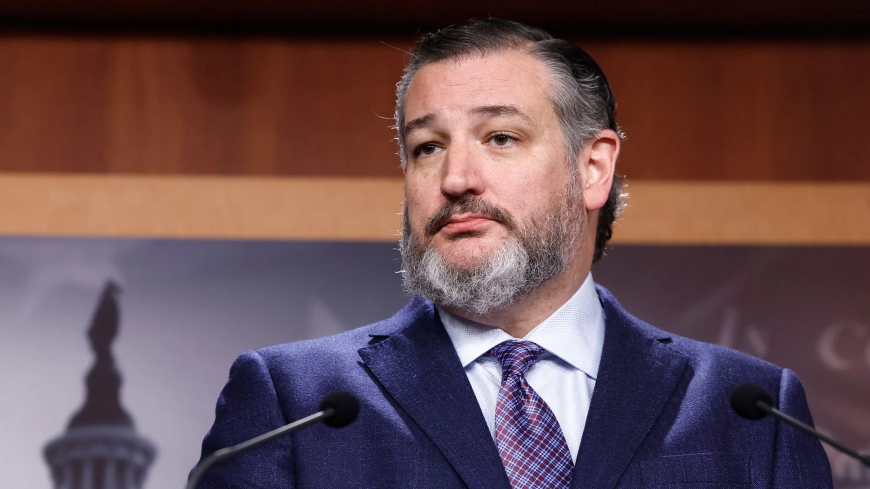Ted Cruz Defends Hate Speech as Free Speech After Charlie Kirk’s Assassination
Ted Cruz says hate speech is “absolutely” protected by the First Amendment after Charlie Kirk’s assassination, echoing Kirk’s own defense of free expression. The debate highlights America’s deep divisions on speech and safety.

In the wake of conservative activist Charlie Kirk’s assassination, U.S. Senator Ted Cruz has reignited debate over the limits of free expression in America. Speaking to reporters on Capitol Hill, Cruz declared that “hate speech is absolutely protected under the First Amendment,” framing the tragedy as a moment to defend constitutional principles rather than restrict them.
The remarks come amid a charged national atmosphere, where questions about extremism, speech boundaries, and political violence are colliding with the realities of America’s polarized discourse.
Cruz’s Firm Defense of the First Amendment
Cruz, a long-time constitutional lawyer and vocal defender of conservative speech, was unequivocal. “The First Amendment doesn’t say, ‘free speech except when you don’t like it,’” he told journalists. “Even offensive or hateful ideas are protected in America. That is the essence of freedom. Once we start carving out exceptions, we hand government the power to silence whoever is unpopular.”
The Texas senator’s comments echoed statements Kirk himself made last year. At a campus event in 2024, Kirk told a group of students that “hate speech is protected speech. If we allow bureaucrats to decide what’s too offensive, we have already lost the battle for liberty.”
Cruz cited Kirk’s defense of free expression as evidence that the late activist understood the risks of protecting speech in its broadest form, even if it made him a lightning rod in the political arena.
The Tragedy That Sparked the Debate
Charlie Kirk, founder of the conservative group Turning Point USA, was assassinated last week during a speaking engagement in Arizona. Law enforcement officials have not yet released a full motive but confirmed the suspect had a history of extremist rhetoric online.
The killing stunned the conservative movement and sparked tributes from political figures, including former President Donald Trump, who called Kirk “a courageous voice for faith and freedom.”
Yet even as tributes poured in, so did renewed calls from progressive leaders to address the spread of inflammatory speech online and at political rallies. For them, Cruz’s insistence on absolute protection raised new concerns about how the country navigates the fine line between speech and incitement.
Legal Context: Why Hate Speech Is Protected
The senator’s claim is supported by decades of Supreme Court precedent. In landmark cases like Brandenburg v. Ohio (1969), the Court held that even speech advocating violence is protected unless it is “directed to inciting imminent lawless action” and is likely to produce such action.
This standard makes the United States unique among Western democracies. Many European nations criminalize hate speech outright, but the American system prioritizes the principle of open expression—even when speech is deeply offensive.
Cruz argued that restricting such speech would ultimately harm the very communities lawmakers claim to protect. “Today, they’ll ban what they call hate speech,” he warned. “Tomorrow, they’ll ban the Bible, or your opinion, or your vote.”
Divisions Among Local Leaders
Reactions to Cruz’s statement have been split.
In Texas, conservative voters and organizations largely rallied behind his words. “He’s absolutely right,” said Richard Meadows, chair of the Dallas County Republican Party. “The First Amendment doesn’t come with a footnote.”
But in cities like Phoenix and Denver, officials emphasized that broad protections must be balanced with public safety. “Free speech is vital, but we cannot ignore the escalating violence tied to extremist rhetoric,” said Phoenix City Council member Maria Hernandez.
Surveys conducted by the Pew Research Center in 2024 revealed that 62% of Americans support some limits on hate speech, especially when it targets race or religion. Yet, 70% of conservatives opposed such limits, highlighting the ideological rift in how Americans interpret the First Amendment.
Echoes of Kirk’s Own Words
Charlie Kirk often warned about the dangers of redefining speech boundaries. In a Turning Point USA podcast episode, he noted: “The left uses the term ‘hate speech’ as a weapon to silence their opponents. But in America, all speech is protected, even the ugly stuff.”
His assassination has now made those words part of a larger conversation about the costs of political discourse in a nation struggling with rising polarization.
Senator Cruz directly referenced Kirk’s position, saying, “Charlie knew better than anyone that once you give the government the power to define hate, they will define you as the problem. His loss is tragic, but his message on freedom will endure.”
National Debate Intensifies
Civil rights groups argue that the line between free expression and dangerous rhetoric is too blurry. The Southern Poverty Law Center, in a statement following Cruz’s remarks, said: “The First Amendment cannot be used as a shield for speech that fuels violence. We must confront how hate speech radicalizes individuals into acts of terror.”
Cruz and other conservatives counter that attempts to regulate hate speech would only expand government power in ways that could silence political opposition. The clash underscores how deeply divided the nation remains on the subject of speech, safety, and democracy.
Implications Ahead of 2026
With the 2026 midterm elections approaching, the political handling of free speech is likely to become a campaign issue. Republicans may leverage Cruz’s strong defense as part of their broader narrative on liberty, while Democrats will press for more accountability in online spaces and public forums.
For now, the assassination of Charlie Kirk has ensured that the debate over hate speech is no longer abstract. It is rooted in grief, politics, and the lived realities of a nation confronting the consequences of its most cherished freedom.
What's Your Reaction?
 Like
0
Like
0
 Dislike
0
Dislike
0
 Love
0
Love
0
 Funny
0
Funny
0
 Angry
0
Angry
0
 Sad
0
Sad
0
 Wow
0
Wow
0









































